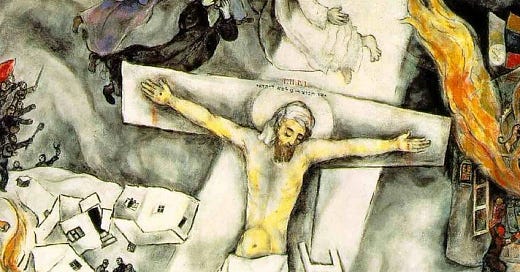[Jesus] replied, “Truly I tell you, today you will be with me in paradise.”
It’s time for me to write my reflection on Luke 23:43. I’m attempting to connect two insights:
This sentence is an expression of Jesus’s hope. Jesus knows He will be in paradise, and He extends that hope to the man to whom He is speaking.
Doctrinally speaking, “paradise” (paradeisos) refers to what has been called the “intermediate state.” If we stick to the language of the Bible, paradeisos evokes the garden. Of the 27 appearances of paradeisos in the OT LXX, 13 occur in Genesis 2-3 to translate “garden” (MT: gan).
I’ll try to develop this over the following movements:
Opening question: What goes through a person’s mind when they know they’re dying?
Narrate the moment, attending to the difference between the question (v. 42) and the reply (v. 43). The man elevates Jesus. Jesus expresses solidarity with the man.
Ask the general question: What’s going through Jesus’s mind?
Ask the particular question: Why the word, paradise (paradeisos), instead of a culminatory word, like (e.g.) “kingdom of God”?
Explain the Jewish background: olam ha-ba, or gan eden.
“Rabbi Joseph, son of Rabbi Joshua ben Levi, was ill and fell into a coma. When he recovered, his father asked him, ‘What did you see?’ He replied, ‘I beheld a world the reverse of this one; those who are on top here were below there, and vice versa.’ He said to him, ‘My son, you have seen a corrected world.’” (Talmud, Pesahim 50a)
Claim: Jesus was strengthened by an indefatigable hope in the new world, the world of which Mary sang (1:46-55).
Landing: When we praise Jesus for His hope in the new world (n.b. Jesus does not hope to circumvent the cross, 23:39), Jesus responds by suffusing us with His hope.



